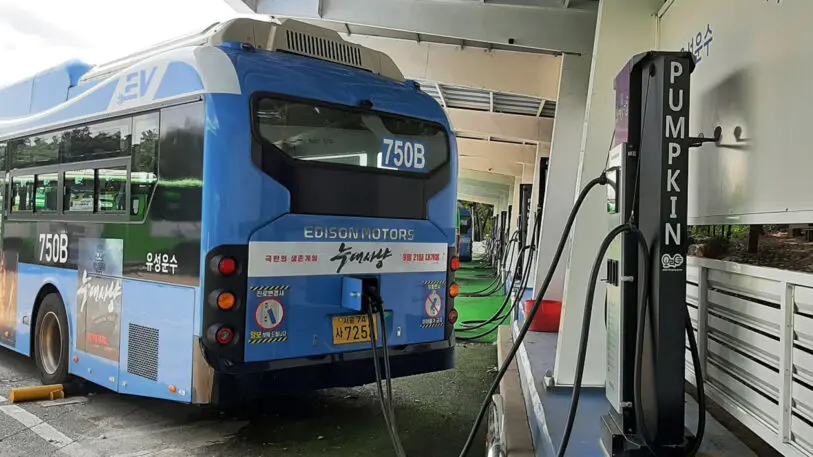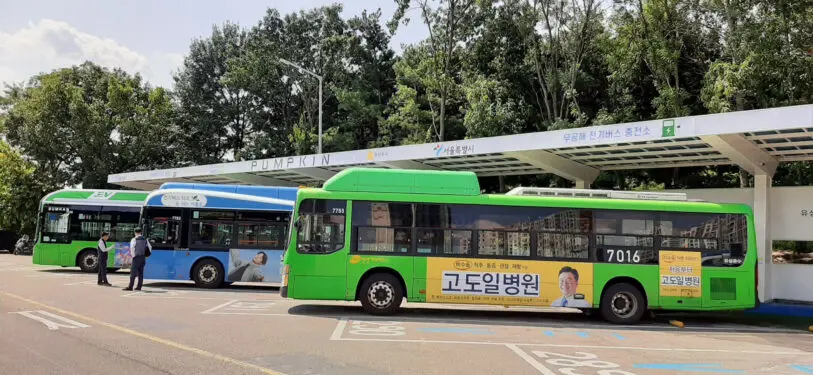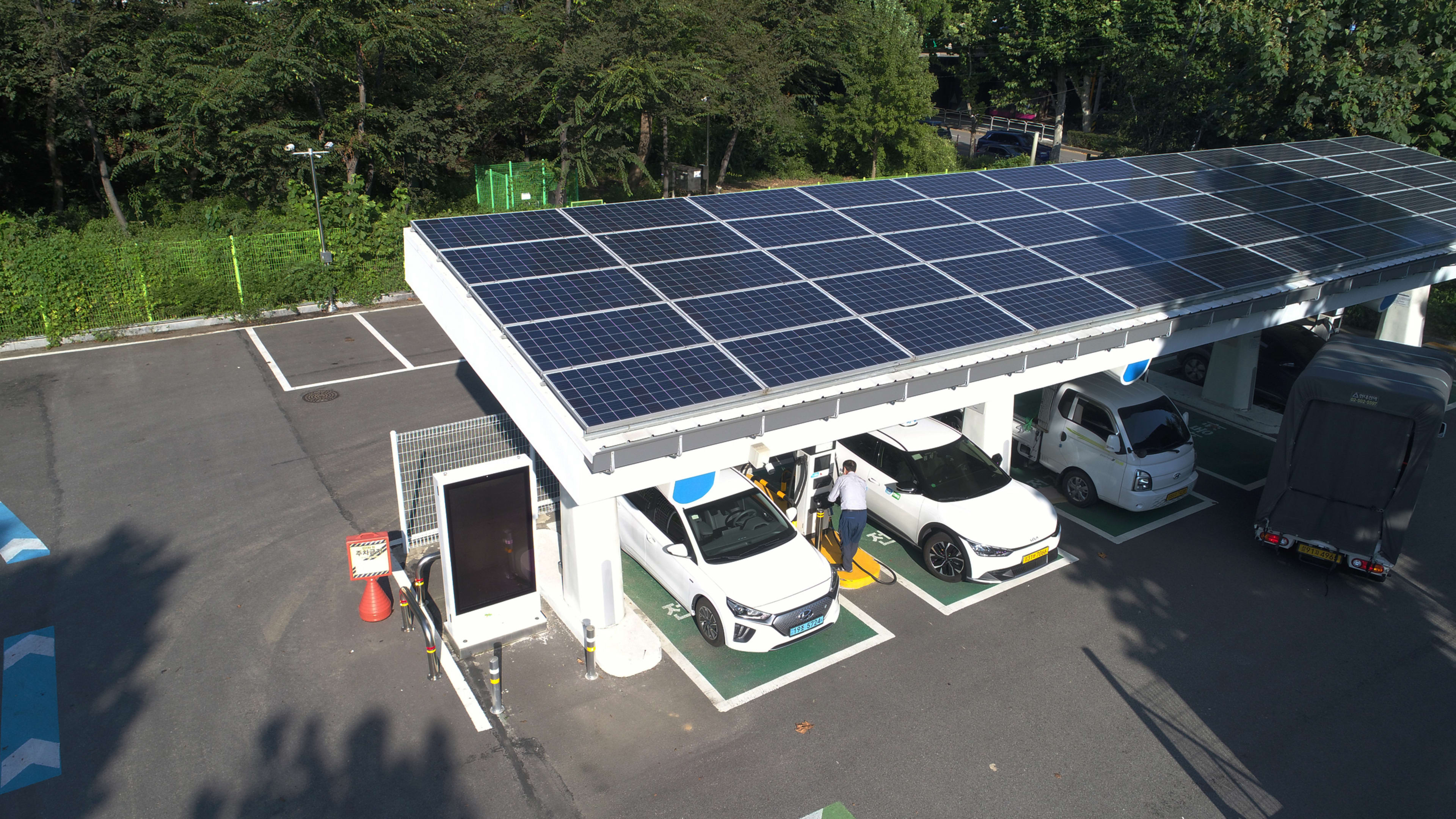In South Korea’s capital city, some streetlights have been replaced by “street lamp chargers” that can fully charge an electric car in an hour. It’s one part of a massive rollout of EV chargers across Seoul, which plans to have more than 200,000 charging stations in place in less than four years.
Charging infrastructure needs to be “dramatically improved to accelerate the transition to electric cars,” says Soonkyu Jung, the eco-friendly vehicle director for Seoul. The city is one of 20 finalists in the C40 Cities Bloomberg Philanthropies Awards, which highlight ambitious climate action.
Most of the city’s 9 million-plus residents use the subway or bus rapid transit system. The city was also an early pioneer in highway removal, tearing out an elevated downtown expressway in 2003 and replacing it with a park and restored stream. But there are still around 4 million registered vehicles in Seoul, including cars and motorcycles. By 2026, the city wants 400,000 of them to be replaced by electric vehicles instead.

Additional fast chargers will be installed next to street parking spaces, and slower chargers will be added in smaller bollards. Chargers are also being added at gas stations and at a few new EV-focused stations equipped with solar power. Others will be added on building walls.
“It is challenging to find space for chargers in a crowded city like Seoul, so we are trying to address this problem by adopting outlet chargers that can be installed on walls and pillars of parking lots and buildings,” Jung says.
Seoul had more than 8,000 charging stations in 2020; that number jumped to more than 20,000 in 2021. The increase to 220,000 is, obviously, even more ambitious. To get a sense of the scale, New York City currently has fewer than 2,000 chargers, and aims to have 46,000 by 2030.

The city center also has a “green transport zone” that restricts access for the most polluting old vehicles; by 2025, those vehicles will be banned across the city. All new city-owned passenger cars have to be electric. By 2035, no new fossil-fueled cars will be able to register in Seoul; by 2050, they’ll be banned from entering city streets.
But the surge in new infrastructure can help the transition begin to happen much more quickly.
By shifting 400,000 vehicles to electric, the city expects to cut more than a million tons of CO2 emissions per year, a 40% drop compared to 2005 levels. Gas and diesel cars are also a major source of smog and PM10, a dangerous pollutant.
“Electrification of transport,” Jung says, “will also significantly improve air quality and public health threatened by air pollution.”
Recognize your brand’s excellence by applying to this year’s Brands That Matter Awards before the early-rate deadline, May 3.
